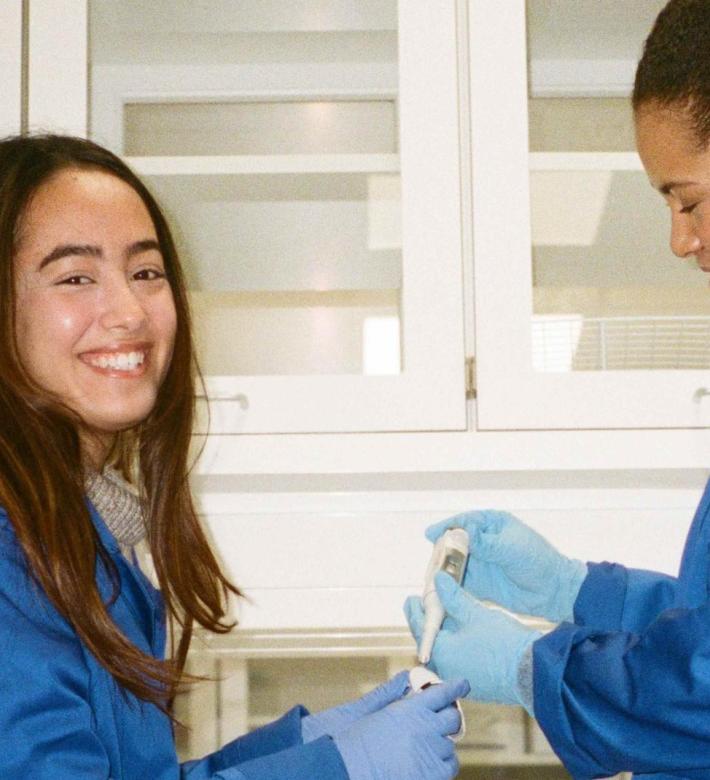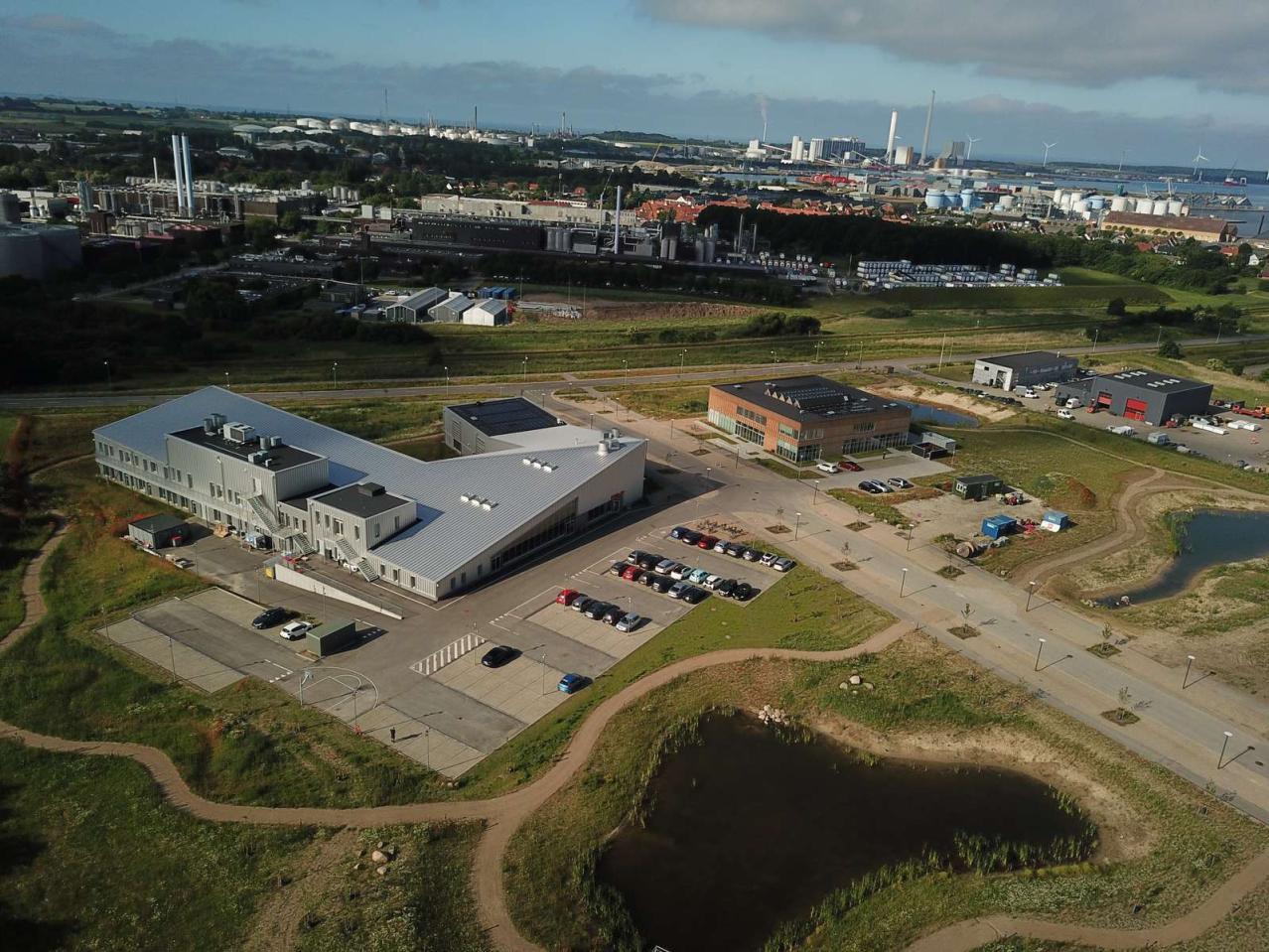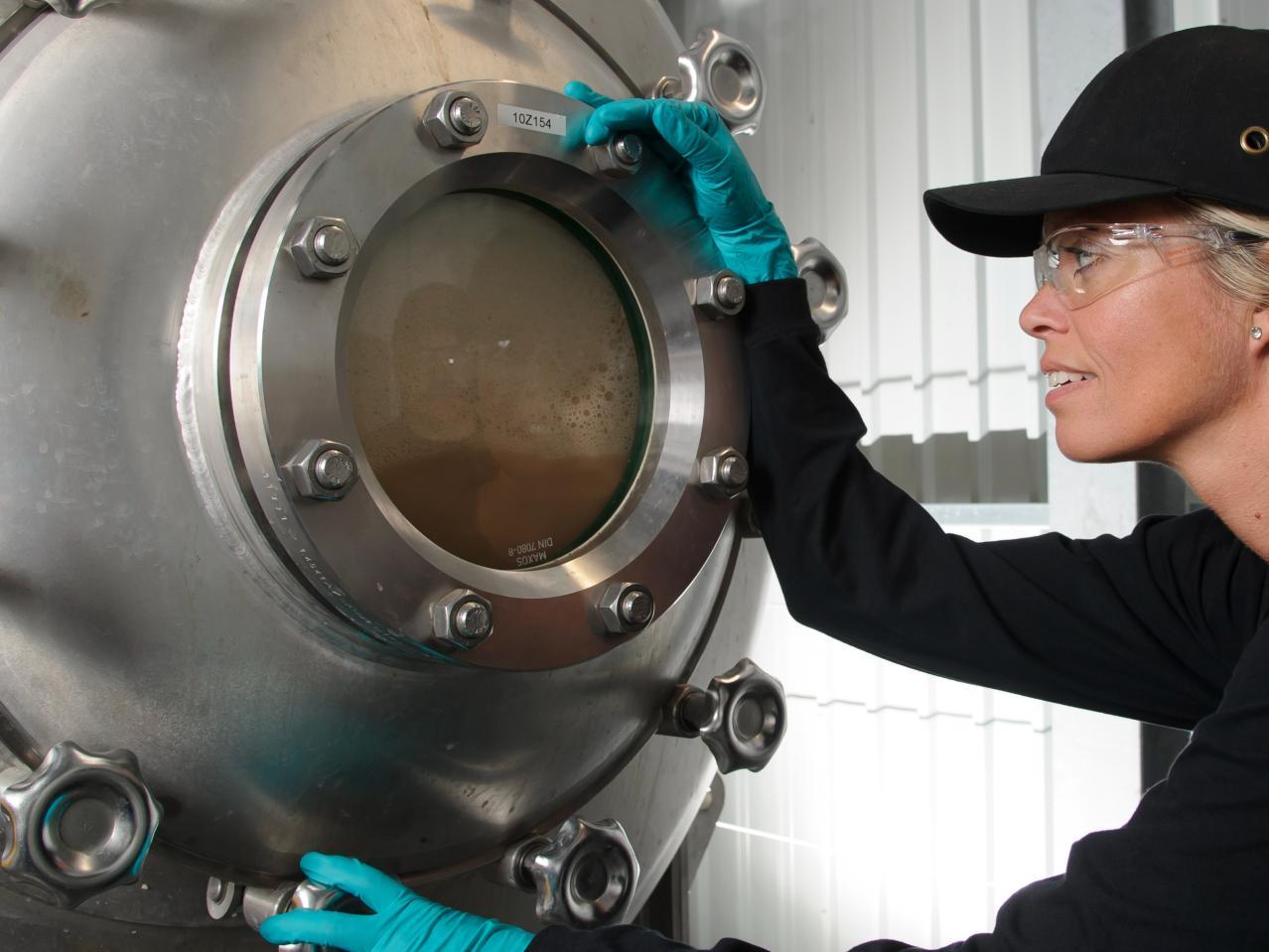
Full-degree Programme
Bachelor of Engineering in Biotechnology
Study for a degree in biotechnology engineering in close collaboration with small and large world-leading biotechnology companies in Biotech City Kalundborg

Full-degree Programme
Study for a degree in biotechnology engineering in close collaboration with small and large world-leading biotechnology companies in Biotech City Kalundborg

Kalundborg is known as Denmark's Biotech City, thanks to its many biotechnological and mechanical engineering companies. The city hosts the world’s largest insulin production company, the leading enzyme producer, Denmark’s biggest refinery, and the world’s first industrial symbiosis, a model of efficient resource sharing.
As a student in Kalundborg, you'll have unique opportunities to engage with these industries. Your education will be enriched through hands-on project work, company visits, guest lectures, mentorship programs, and internships with some of the world's leading companies. This close integration of education and industry will equip you with valuable experience, preparing you for a rewarding future in your field.

As a Bachelor of Engineering in Biotechnology you acquire a wide range of career opportunities in the world's leading biotech companies.
You will gain competencies in production and development involving biotechnological processes. This could include solving tasks in fields such as chemical engineering, pharmaceutical science, food technology, quality assurance and control, environmental chemistry, and energy optimization, covering food, feed, pharmaceutical production, as well as the environmental and energy sectors.
You will qualify for roles such as operations, production, or quality engineer, working with process control and regulation based on chemical, physical, and biological data analysis. Developing and optimizing production processes may also be part of your responsibilities.
Additionally, you can work in research and development, consulting, or public administration, handling areas such as environmental or regulatory affairs.
The recommended minimum salary for newly graduated engineers with a diploma degree in 2024, according to IDA, is 43,600 DKK.
To meet the admission requirements, you need the following qualifications:
• An upper secondary school leaving certificate/high school diploma, or
• A Danish Admission Course for Engineering programs
With:
To document fulfillment of the subject requirements, please attach a verification form to your application. The verification form must be completed, signed, and stamped by the school where the entry qualification was obtained.
Recognition of foreign exam
If you apply on the basis of a foreign exam, we encourage you to have your exam recognised at the Danish Ministry of Higher Education and Science before applying.
Foreign exams also include International Baccalaureate (IB), regardless of whether it has been taken in Denmark or completed in another country.
You apply for admission through www.optagelse.dk, where you will be guided through the electronic application.
Sending an application requires preparation, and it is your responsibility to make sure that the application is correct. Therefore, it is a good idea to start well in advance, if you are applying for admission to one or more educations.
We recommend that you read our application guide, where you will find answers to anything regarding filling in the application, how to upload attachments etc.
Application deadline
Fee
Applicants who are citizens in an EU or EEA country have access to free higher education in Denmark and therefore do not need to pay tuition fee.
Applicants who are citizens in a country outside the EU have to pay a tuition fee before the start of every semester.
Moving to a new country is an exciting and challenging experience
If you would like to know more about life as a student in Denmark, please visit www.studyindenmark.dk, where you will find general information about health and safety, living expenses etc.
Important information for non-EU/EEA students
If you are a non-EU/EEA student, you need a residence permit or visa for your stay in Denmark.
The specific type of permit or visa depends on your country of origin and purpose in Denmark. You can read more about the rules and regulations at www.newtodenmark.dk
Accommodation
Live close to campus, beaches, forest and the City of Kalundborg, everything within a 30 minute bike ride. Read more here
When studying and living in Denmark it is an obvious opportunity to learn the local language thereby opening even more doors in your future career in Denmark or abroad.
In Denmark we offer free Danish Education on campus through the local Language Center (At Absalon: Kalundborg Language School).
You pay 2000 DKK as a deposit BEFORE you start your Danish Classes. As you pass your tests on time, you will get the deposit back.
A Danish course consists of 6 parts – and after each part you will get the choice to continue or get your deposit refunded.
The classes take place on your campus – typically in the afternoon or early evening after school.